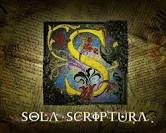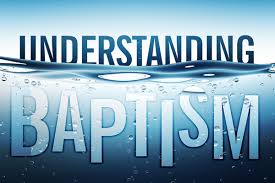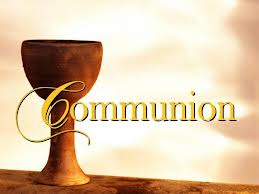As we have seen a “low church” tradition refers to Protestant adherents who give little emphasis to ritual, sacraments, or the authority of the clergy.
When the Protestant Reformation took place it was accompanied by three affirmations: Sola Scriptura, Sola Gratia, Sola Fide (Scripture Alone, Grace Alone and Faith Alone).
Instead of trusting in the sacramental work of priests to save their souls, the reformers sought to reestablish their faith on the Bible alone with its message of grace accessed by faith.
In Lutheran and Calvinist churches we find some continuity with the church tradition of Rome, while still retaining only two sacraments or ordinances: baptism and the Lord’s Table.
C. S. Lewis reflected a similar view when addressing the core of Christian belief in Mere Christian:
There are three things that spread the Christ-life to us: baptism, belief, and that mysterious action which different Christians call by different names—Holy Communion, the Mass, the Lord’s Supper. At least, those are the three ordinary methods. I am not saying there may not be special cases where it is spread without one or more of these. I have not time to go into special cases, and I do not know enough. If you are trying in a few minutes to tell a man how to get to Edinburgh you will tell him the trains: he can, it is true, get there by boat or by a plane, hut you will hardly bring that in. And I am not saying anything about which of these three things is the most essential. My Methodist friend would like me to say more about belief and less (in proportion) about the other two. But I am not going into that. Anyone who professes to teach you Christian doctrine will, in fact, tell you to use all three, and that is enough for our present purpose (Mere Christianity).
Although a number of Protestant church traditions retained the practice of infant baptism through sprinkling as a sign of the community of faith (Romans 4:11), many other Protestants adopted a different view. Studying the key passages on baptism they believed that baptism was an outward witness to a conversion experience with Christ in which a believer identifies with His death, burial and resurrection. Biblically this was pictured through baptism by immersion.
Paul’s writings on the spiritual meaning of believer’s baptism seems to connect with the imagery of going down into the water and coming back up again:
What shall we say then? Are we to continue in sin that grace may abound? 2 By no means! How can we who died to sin still live in it? 3 Do you not know that all of us who have been baptized into Christ Jesus were baptized into his death? 4 We were buried therefore with him by baptism into death, in order that, just as Christ was raised from the dead by the glory of the Father, we too might walk in newness of life (Romans 6:1-4).
5 For if we have been united with him in a death like his, we shall certainly be united with him in a resurrection like his. 6 We know that our old self[a] was crucified with him in order that the body of sin might be brought to nothing, so that we would no longer be enslaved to sin. 7 For one who has died has been set free[b] from sin. 8 Now if we have died with Christ, we believe that we will also live with him. 9 We know that Christ, being raised from the dead, will never die again; death no longer has dominion over him. 10 For the death he died he died to sin, once for all, but the life he lives he lives to God. 11 So you also must consider yourselves dead to sin and alive to God in Christ Jesus (Romans 6:5-11).
The other sacrament or ordinance accepted by Christians is that of the Lord’s Table or Communion. It was inaugurated by Our Lord during the Passover meal on the night in which he was betrayed:
Now as they were eating, Jesus took bread, and after blessing it broke it and gave it to the disciples, and said, “Take, eat; this is my body.” 27 And he took a cup, and when he had given thanks he gave it to them, saying, “Drink of it, all of you, 28 for this is my blood of the[b] covenant, which is poured out for many for the forgiveness of sins. 29 I tell you I will not drink again of this fruit of the vine until that day when I drink it new with you in my Father’s kingdom” (Matthew 26:26-29).
Here is Paul’s treatment of how this outward sign of a Christ’s commanded meal was to serve to remind us of his sacrifice until His return:
23 For I received from the Lord what I also delivered to you, that the Lord Jesus on the night when he was betrayed took bread, 24 and when he had given thanks, he broke it, and said, “This is my body which is for[b] you. Do this in remembrance of me.”[c] 25 In the same way also he took the cup, after supper, saying, “This cup is the new covenant in my blood. Do this, as often as you drink it, in remembrance of me.” 26 For as often as you eat this bread and drink the cup, you proclaim the Lord’s death until he comes.
27 Whoever, therefore, eats the bread or drinks the cup of the Lord in an unworthy manner will be guilty concerning the body and blood of the Lord. 28 Let a person examine himself, then, and so eat of the bread and drink of the cup. 29 For anyone who eats and drinks without discerning the body eats and drinks judgment on himself. 30 That is why many of you are weak and ill, and some have died.[d] 31 But if we judged[e] ourselves truly, we would not be judged. 32 But when we are judged by the Lord, we are disciplined[f] so that we may not be condemned along with the world (1 Corinthians 11:23-32).
A distinctive of non-liturgical traditions is to view communion as a spiritual reminder of Christ’s sacrifice and an opportunity for self-examination and repentance.
What view do you hold of baptism and communion and how does it affect your spiritual walk with Christ?










Just like a kaleidoscope breaks a surface plane into several facets and as you turn the knob beautiful compositions emerge and others disappear, my view on baptism has been formed over time by many different denominations and personal experiences. Whether an individual identifies with Christ in baptism as an infant when his parents took him to church to be baptized, or believer’s baptism as a young person or adult, the sacrament of baptism is that it is a one time event. The Eastern Orthodox Church recognizes one’s baptism if it is a Trinitarian Baptism, meaning you were baptized (fully immersed or sprinkled) with water in the Name of the Father, Son and Holy Spirit. Christ gave us His example to follow when He was baptized by John in the Jordan River. He was baptized not because He had need of being cleansed for His sin, He had no sin. He was baptized to fulfill all righteousness so that we who need repentance would follow Him, and be baptized becoming dead to sin and alive unto righteousness. The God-man Jesus Christ identified with us by becoming man and submitting Himself to be baptized by one He had formed with His own hand.
With baptism comes cleansing, renewal, and salvation that allows free choice. Christ came to restore us unto Himself. He wants us to want Him. He won’t force His way into our lives.
With the Eucharist comes confession, forgiveness, restoration and communion. It is entering into the Bridal Chamber with Jesus Christ when we partake of the Holy Mysteries of the Body and Blood of Christ. He sustains, empowers, strengthens, enlivens us with His Holy Spirit.
LikeLike
Thank you for your eloquent expression of the two sacraments.
LikeLike
My religious experience was and is that baptism is an experience of a believer. I choose not to defend such a position in a medium such as this. I remember my baptism, at 15, clearly and was fully cognizant of the event and it obligations. My parents of course were present and rejoiced that I had come to a public confession of my faith.
In the practice of baptism, as a pastor, I would remind the candidate that they were making the personal commitment to be viewed by the public. And acknowledging that should they deviate from path of sanctification they were telling one an all that we could call them to remembrance of that commitment. How much more vivid is that commitment in those communions who do not have a baptistry and do so in a public venue such as a lake or stream where neighbors and friends attend. More often than not, in third world countries, with a strong emerging evangelical movement.
Though I fully believe that a young child can be saved I hesitate to baptize them until they have a fuller understanding of it. Especially in Brasil where Baptism was akin to a rite of passage to heaven. I never baptized without parental consent and permission. I do recall when two young girls came and asked to be baptized … five and seven yrs of age. I talked to the parents and said something like, “I will baptize them if you pledge that you will build on this foundation in the home reminding them often of it significance. Their parents were strong and firm believers. They kept their promise and both girls were recently married to believing husbands.
Saying all of that I do believe, in my denominational commitment, that one should proceed with great caution in baptizing very young children. It can give a false hope to one who does not fully understand. It is a significant milestone in the life of the candidate and they need to be aware of all of its implications. Especially since I see no inherent religious merit in the baptismal waters. Waiting would not diminish the salvation experience.
LikeLike
Helpful insights on screen the sincerity of children in believer’s baptism.
LikeLike
My view of these two sacraments, baptism and communion, adheres to what I believe the scriptures teach. But first, a definition of the word sacrament according to my dictionary: sacrament (sak-ruh-muh nt) – noun Ecclesiastical, a visible sign of an inward grace, especially one of the solemn Christian rites considered to have been instituted by Jesus Christ to symbolize or confer grace.
I believe baptism for the Christ follower is a public demonstration of one’s conversion to Christ alone for salvation and is pictured by immersion – identifying with Christ’s death, burial, and resurrection. (Romans 6:1-11)
Communion is a memorial to what Christ did on the cross in payment for my sins and the sins of the world. Paul reminded us in 1 Corinthians 11:23-32, we are to receive the bread and the cup, which represent the broken body and shed blood of our Savior in remembrance of His sacrifice. This should also be a time of self-examination and confession of sin if needed.
My daily walk with Christ is impacted as I take time to remember all he has done for me. His substitutionary death on a cruel cross and subsequent resurrection, paying my sin debt, granting an abundant life here and an eternity with him are good reasons to live for and serve him with much gratitude.
LikeLike
Bob: Your personal view on the significance of baptism and communion are insightful. Certainly, these outward symbols signifying an invisible but eternal reality stemming from the redemptive work of the living Christ.
LikeLike
I have a hard time with the solas. Not because there isn’t some truth in them, even much truth. But due in my view to the impossibility of avoiding tradition. The church at large and its teaching in interpreting scripture cannot be set aside according to scripture itself, the church called the pillar and foundation of the truth. I would probably hold to something like the “Wesleyan Quadrilateral”: scripture first (primera scriptura), then tradition and reason and rightly understood, experience.
I believe the sacramental life should not diminish the common life we’re to share with one another in Christ and by the Spirit. As in the “one anothers.”
I do believe scripture teaches that baptism and the Lord’s Table are more than ordinances. They are in some way a participation in Christ. That said, of course faith is indispensable, a faith that evidences its reality with good works.
All of this said, I also believe all true churches are actually one in our Lord, in spite of our differences. Which is why I suppose I am attracted to the “mere Christianity” of C. S. Lewis.
LikeLike
Bravo! On bringing other counter balancing elements into the “Solas.” I have felt indebted to the Nicene Creed for several decades know. And this affects my view of continuity of the faith.
LikeLike
Clarification: A major issue for me with the solas is how I believe other traditions of the church are misunderstood.
LikeLike
Yes, a further clarification: My appeal to tradition is strictly in terms of what scripture says, its interpretation. Especially in regard to the gospel. The church is critical in that, not individual believers. My last comment on this post.
LikeLike